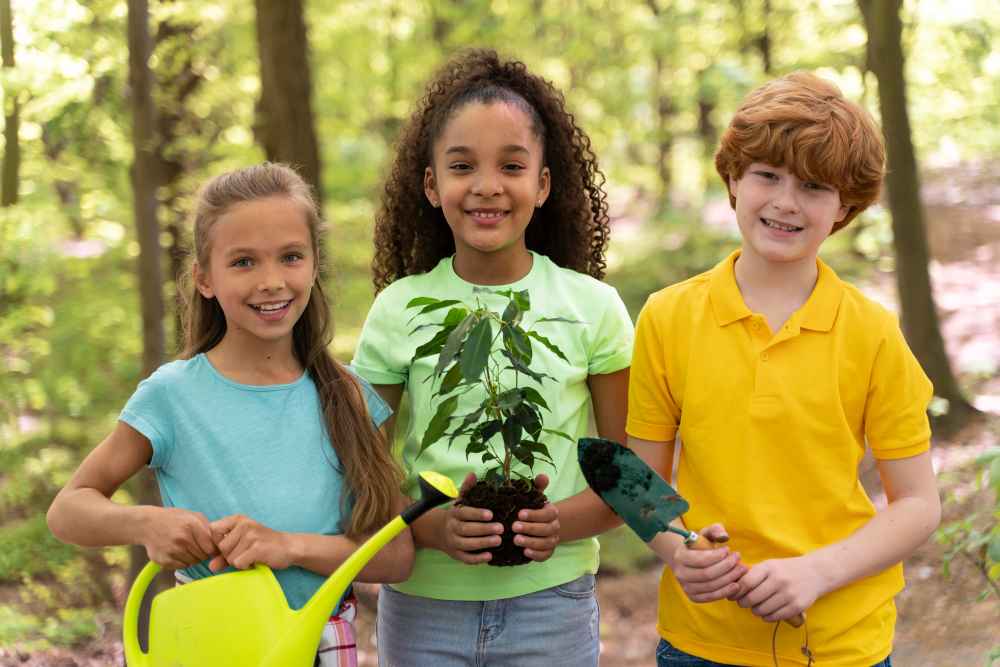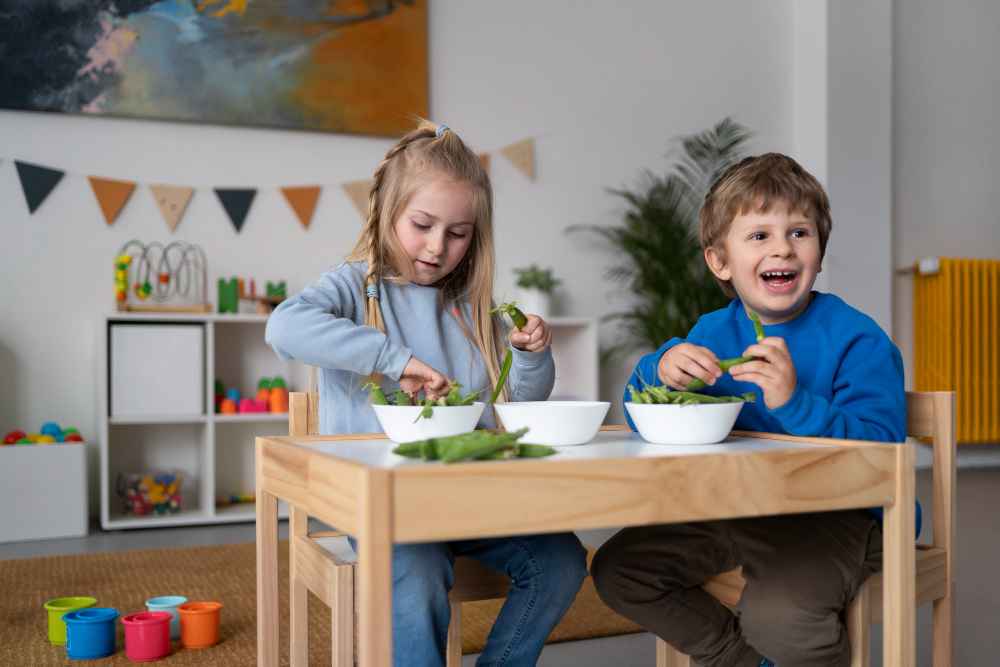
Preschools play a pivotal role in shaping young minds and nurturing a sense of responsibility towards the environment. In recent years, there has been a growing recognition of the importance of instilling sustainability and environmental awareness in early childhood education. This essay explores how preschools can actively promote a sense of environmental stewardship among young children and contribute to a more sustainable future.
Creating Eco-Friendly Learning Environments
Preschools can start by creating eco-friendly learning environments that reflect sustainable practices. This involves incorporating elements such as energy-efficient lighting, water conservation measures, and proper waste management. By adopting sustainable infrastructure and practices, preschools not only demonstrate environmental responsibility but also provide tangible examples for children to observe and learn from.
Integrating Nature-Based Education
Nature-based education is a powerful tool for promoting sustainability in preschools. Connecting children with the natural world through outdoor activities, nature walks, and gardening fosters an appreciation for the environment. Preschools can create outdoor learning spaces, including gardens or natural play areas, where children can engage with the elements of nature directly. This connection helps instill a sense of responsibility and care for the natural world.
Teaching Environmental Concepts through Play
Play-based learning is an effective approach to introduce environmental concepts to preschoolers. Through age-appropriate games, activities, and toys, educators can convey messages of sustainability and environmental awareness. Preschools can incorporate recycled materials into art projects, use eco-friendly toys, and design games that highlight the importance of conservation. Making learning enjoyable and interactive helps children absorb key environmental messages.
Implementing Waste Reduction Strategies
Preschools can actively engage in waste reduction strategies by minimizing the use of single-use materials and promoting recycling. Setting up recycling stations within the preschool encourages children to sort waste materials correctly. Additionally, preschools can explore creative ways to repurpose materials for arts and crafts, teaching children the value of reusing items instead of discarding them.
Incorporating Sustainable Practices in Daily Routines
Integrating sustainable practices into daily routines reinforces environmental awareness. Simple actions, such as turning off lights when not in use, conserving water, and reducing paper usage, can become habits that children carry with them into adulthood. Preschools can involve children in these practices, explaining the reasons behind them and emphasizing their positive impact on the environment.
Celebrating Environmental Awareness Events
Preschools can actively participate in and celebrate environmental awareness events, such as Earth Day. These occasions provide opportunities for themed activities, projects, and discussions that focus on environmental issues. Engaging children in age-appropriate conversations about topics like climate change, biodiversity, and conservation helps build a foundation for a lifelong commitment to environmental stewardship.
Promoting Healthy Eating and Nutrition
Connecting sustainability to food choices is another avenue for preschools to instill environmental awareness. Emphasizing the importance of locally sourced, seasonal, and organic produce not only promotes healthy eating habits but also introduces concepts of sustainable agriculture and reduced carbon footprint. Preschools can incorporate gardening activities to teach children about the origins of food and the environmental impact of their dietary choices.

Related : How Do Nature-Based Preschools Enhance Early Childhood Development?
Suggesting a Preschool: Cultivating Environmental Stewardship
When selecting a preschool for their child, parents should seek institutions that actively cultivate environmental stewardship. Consider preschools that integrate nature-based education, promote sustainable practices in their learning environments, incorporate waste reduction strategies, and celebrate environmental awareness events. A preschool that embraces these principles provides a comprehensive approach to fostering a sense of responsibility towards the environment in young learners.
Montessori Shir-Hashirim Los Angeles
- 6047 Carlton Way, Los Angeles, CA 90028
- Highly rated for focused curriculum, excellent staff, and diverse extracurriculars
- Half day: $27,000 yearly, $9,000 quarterly
- Full day: $28,500 yearly, $9,500 quarterly
Shir-Hasirim Montessori school has two different locations. The main location is on Carlton Way in Los Angeles. This school teaches children between the ages of 2 and 6 and prepares them for some of the top Montessori elementary schools in the city. Specifically, they offer a primary program and a summer program for preschool children.
At Shir-Hashirim, they allow their students to grow and learn both individually and within the community of the school. Students are able to learn at their own pace when it comes to both practical life skills and subjects such as math and language.
Shir-Hashirim Montessori has a parent-and-me program that is best for the families who may enroll their child in the Montessori program.
Conclusion
In conclusion, preschools have the power to shape environmentally conscious individuals by integrating sustainability and environmental awareness into their educational practices. By creating eco-friendly learning environments, incorporating nature-based education, teaching environmental concepts through play, implementing waste reduction strategies, integrating sustainable practices into daily routines, celebrating environmental awareness events, and promoting healthy eating and nutrition, preschools contribute to building a generation that values and protects the planet. Through these efforts, preschools not only educate young minds but also inspire a commitment to sustainable living that can last a lifetime.
